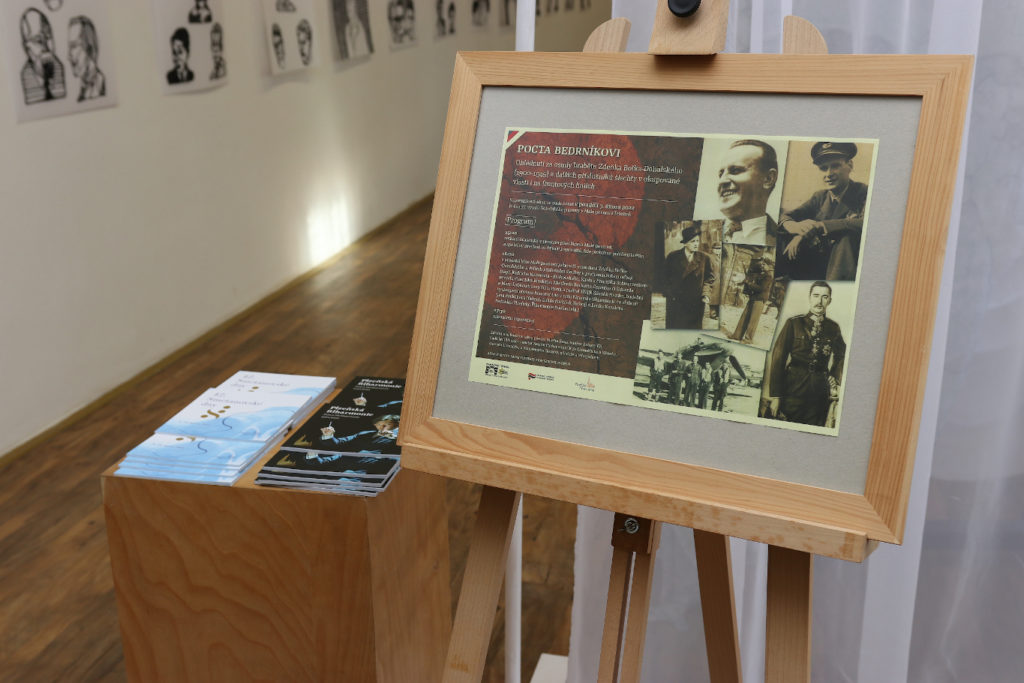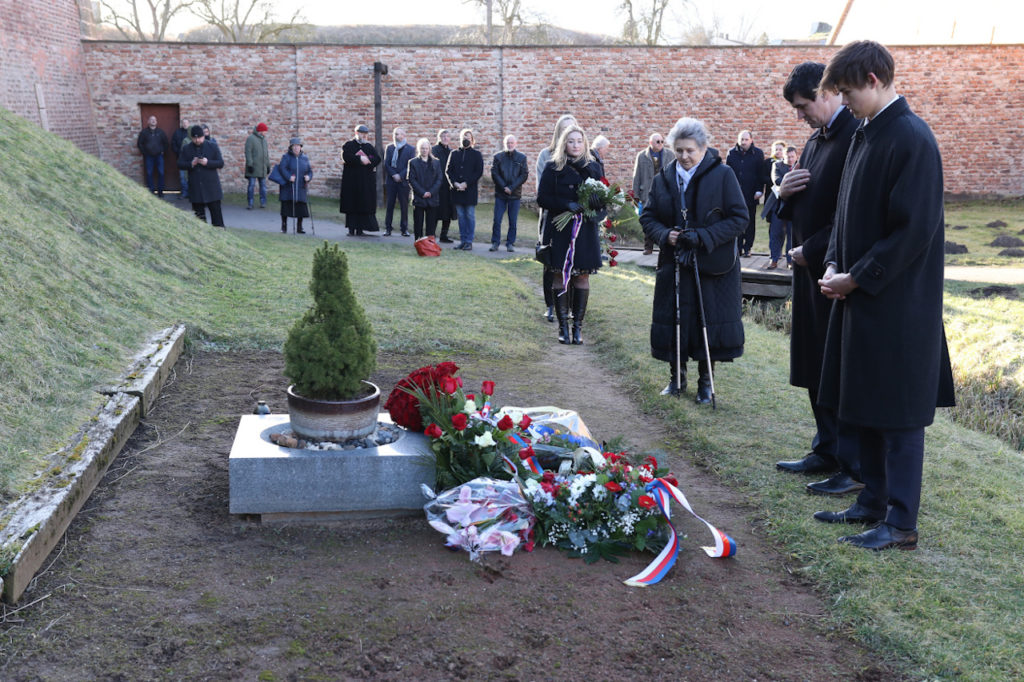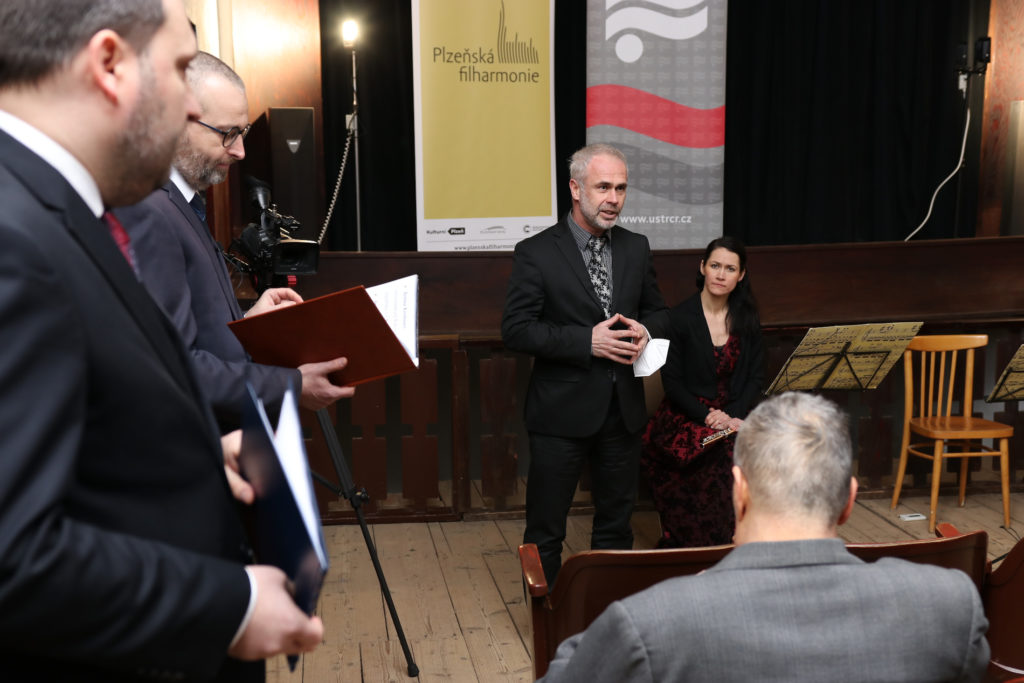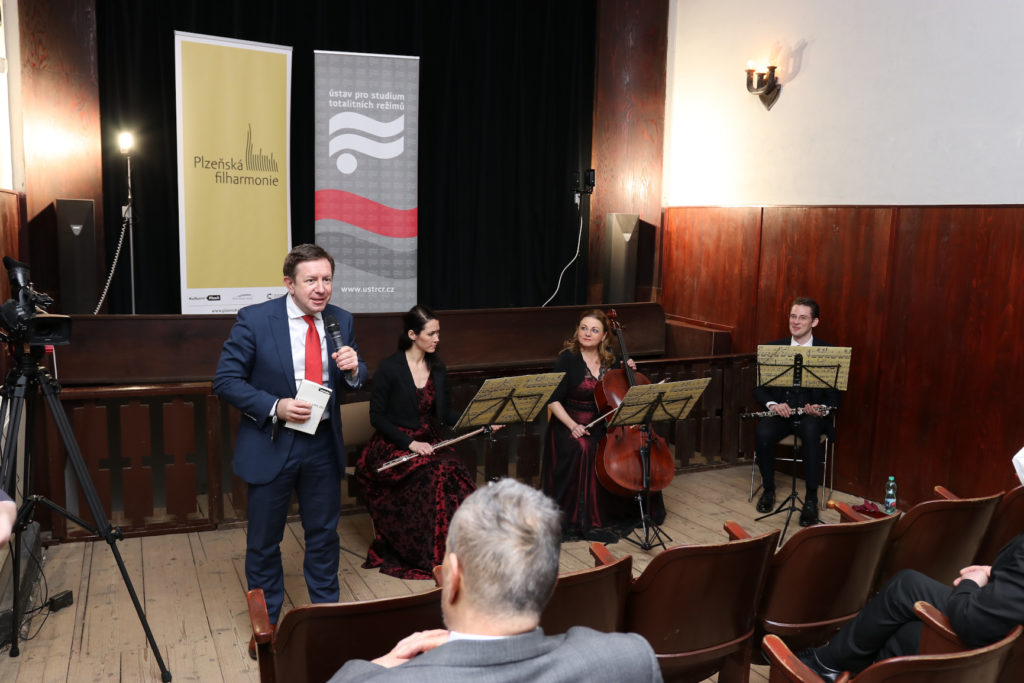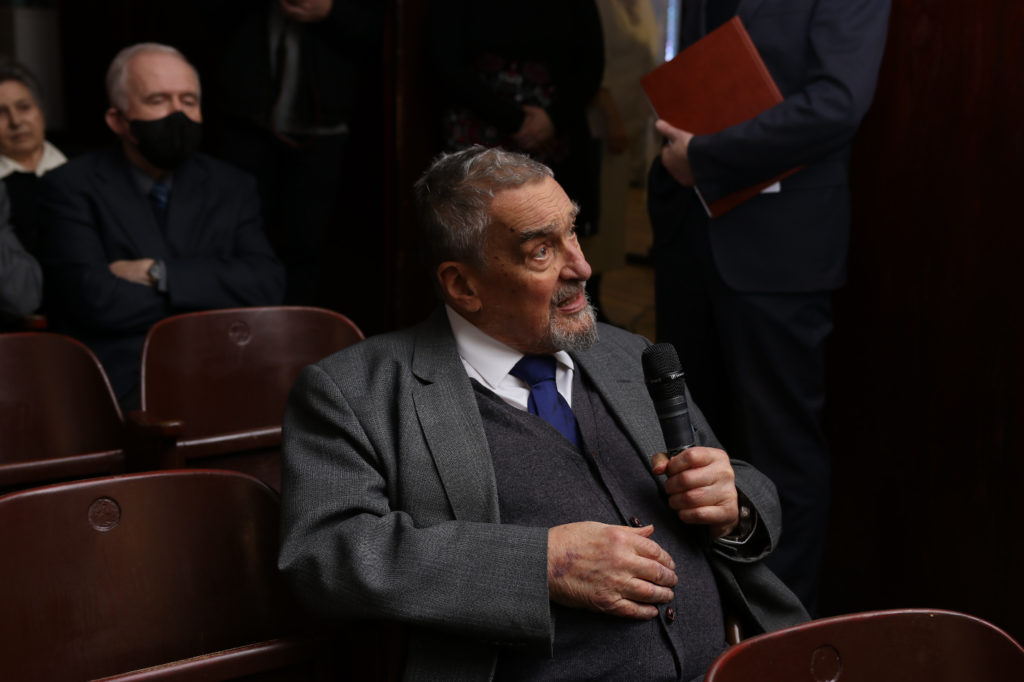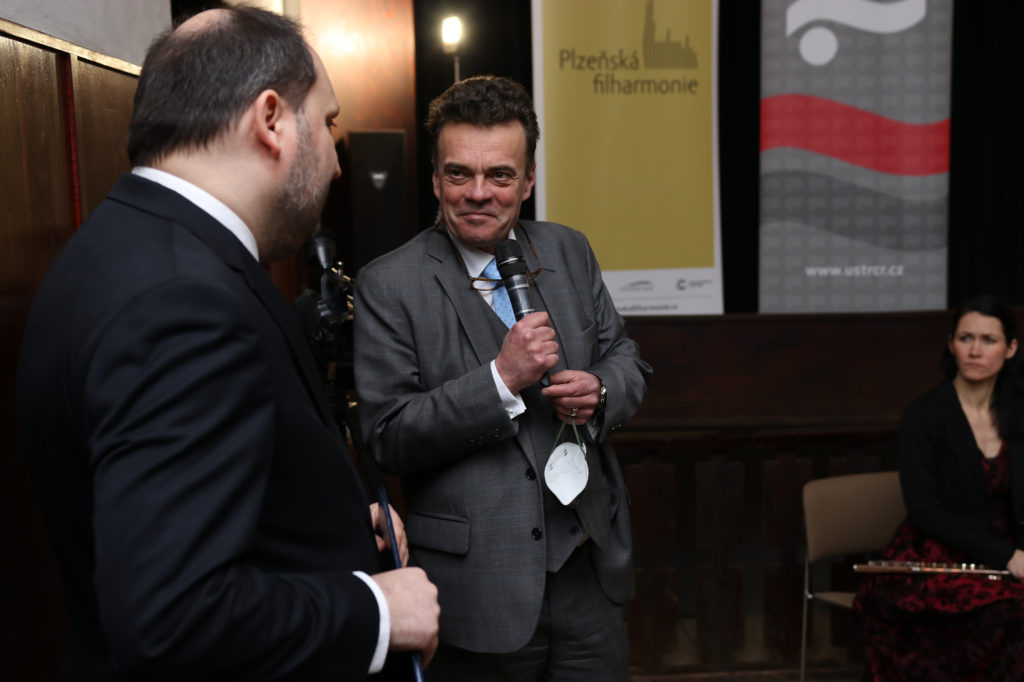For the third time already, the Terezín Memorial and the Institute for the Study of Totalitarian Regimes prepared a composite program on the occasion of the anniversary of the wartime execution of Zdeněk Bořek-Dohalský, whose life was prematurely ended at the age of 44 in the Police Prison in Terezín on February 7, 1945. He was one of the citizens of aristocratic descent in interwar Czechoslovakia who later joined the anti-Nazi resistance movement after the occupation of the country. Held in the Terezín Memorial on a February evening, the event was designed to recall the life stories and highlight the significance of some of the Czech aristocrats for their society.
The organizers were immensely pleased when a number of notables accepted their invitation to attend the event. In his opening speech Terezín Memorial Director Jan Roubínek had the pleasure to welcome Czech Deputy Minister of Culture Vlastislav Ouroda, Deputy Minister of Education, Youth and Sports Jaroslava Miller, Her Excellency Bettina Kirnbauer, the Ambassadress of Austria, Martin Groman, President of the Ferdinand Peroutka Society, René Tomášek, the Mayor of Terezín, and last but not least Václav Bořek-Dohalský (great-grandnephew of Zdeněk Bořek-Dohalský), Senator Tomáš Czernin, former politician Karel Schwarzenberg, and Gabriel Mulamuhič, the Roman-Catholic spiritual administrator of the Lidice Memorial. The rally was held under the auspices of the Czech Minister of Culture Martin Baxa, Senator and Mayor of Litoměřice Ladislav Chlupáč, and the Ministry of Education, Youth and Sports of the Czech Republic.
Its program commenced at 3 p.m. on February 7, 2022 with a ceremony on the site where Zdeněk Bořek-Dohalský stood in front of a Nazi firing squad exactly 77 years ago. The participants then moved to the cinema in the Small Fortress, first to hear addresses by the Terezín Memorial Director, Deputy Minister of Culture Vlastislav Ouroda, Deputy Education Minister Jaroslav Miller, and then listen to a lecture presented by Zdeněk Hazdra, historian and the then Director of the Institute for the Study of Totalitarian Regimes. His lecture was interspersed with addresses by the attending representatives of the aristocratic families of Dohalský (in addition to Václav Dohalský, his mother Marie was also present), Czernin and Schwarzenberg, plus musical performances by the Prague Ensemble chamber trio.
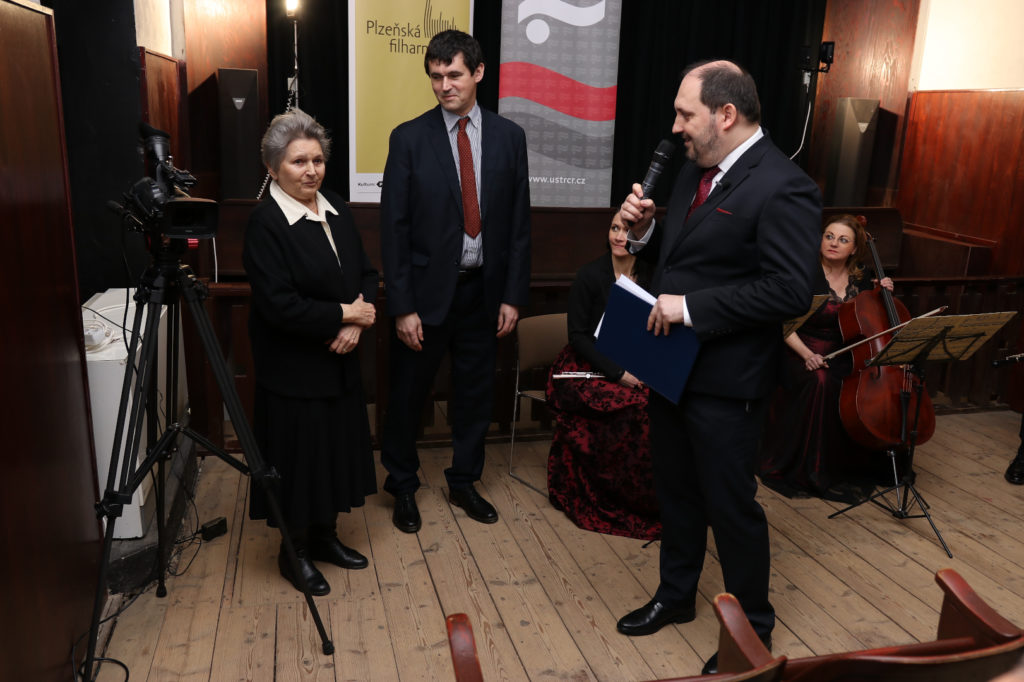
Zdeněk Hazdra spoke not only of Zdeněk Bořek-Dohalský but also of his brothers Antonín and František, as seen from the prism of the history of this noble family as well as of Central Europe during the first half of the 20th century. He went on to describe the life stories of other personalities of aristocratic descent inextricably linked with interwar Czechoslovakia and the struggle against Nazi Germany: namely Jindřich Kolowrat-Krakovský, Manfred Beckett Czernin, Franz Ferdinand Colloredo-Mansfeld, Eduard and Maxmilián Lobkowicz. The lecturer also stressed the significance of the declaration, made by some representatives of Czech noble families from the years 1938 and 1939, proclaiming their loyalty to the Czech state, calling for its defense and inviolability of its frontiers, and espousing their Czech origin, first in regional and then national terms. ”This is the last moment in our modern history when the nobility publicly came to the fore in this manner as a whole and involved itself in the country´s social and political affairs. I specifically mean those aristocrats who avowed their bonds with the Czech lands or rather the Czech nation. And with this declaration, called – not accidentally – a national declaration from 1939, these aristocrats emphasized their kinship not only with the land but also with its nation. They proclaimed: We are Czechs. To be precise, these aristocrats made up roughly one third of the noble families then living in our territory. Approximately 70 percent of the aristocratic families espoused German nationality but even among them differences should be made,“ Zdeněk Hazdra explained. In actual fact, father of Karel Schwarzenberg, who attended this gathering, was the author of the first wording of the declaration handed over to President Beneš in September 1938.
This very successful commemorative event, concluded shortly before 6 p.m., could be also watched on YouTube on the Terezín Memorial´s Channel by those interested parties who could not come to the Small Fortress cinema for personal or other reasons connected with the ongoing pandemic.
At the end let us answer the question the readers of this article probably asked themselves already when reading its opening section: why call the commemoration Homage to Bedrník? For the record, this was one of the aliases used by Zdeněk Bořek-Dohalský in the resistance movement; it was chosen under the influence of the famous novel by Emmuska Orczy called in Czech Červený bedrník (The Scarlet Pimpernel), set during the Great French Revolution.
Jan Špringl

